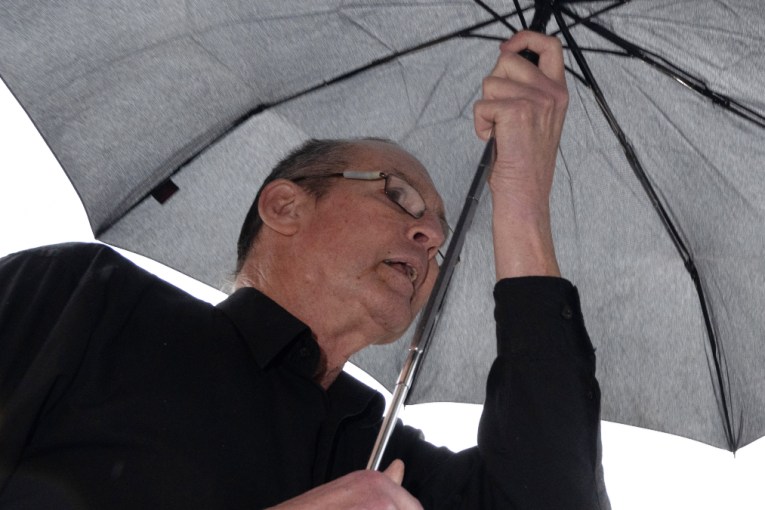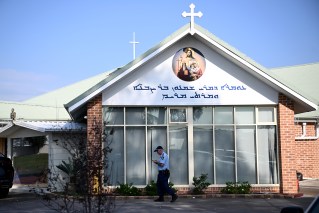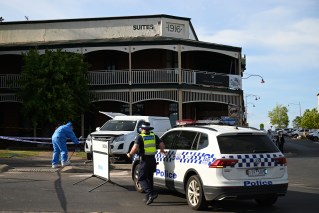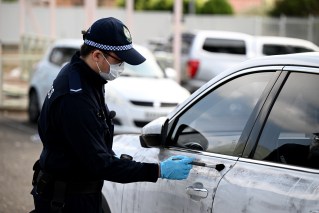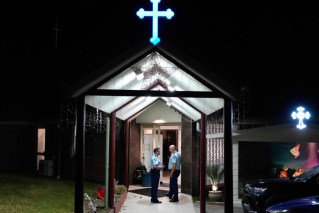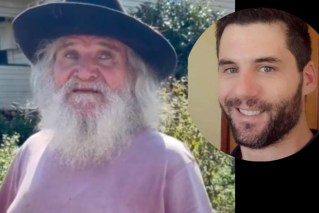What Australia’s ‘extreme’ new coronavirus laws and police powers mean for our civil liberties

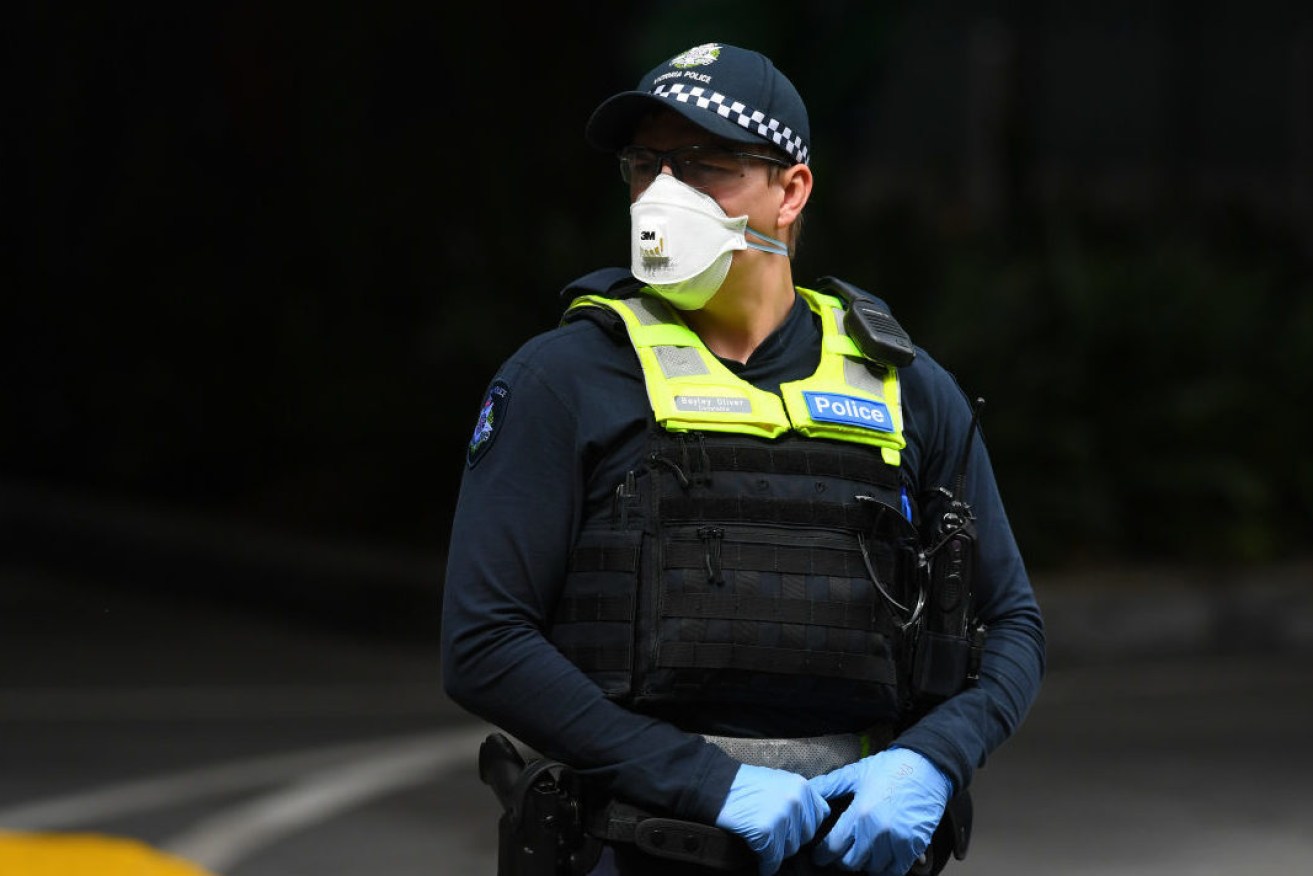
Police in Victoria, NSW and Tasmania have been tasked with enforcing new stay-at-home laws. Photo: Getty
Civil liberties experts have raised concerns over draconian new laws that heavily limit freedom of movement in a bid to slow the spread of the coronavirus.
On Sunday night, Prime Minister Scott Morrison tightened restrictions on gatherings to no more than two people, to be enforced at the discretion of individual states and territories.
While the Northern Territory and South Autralia said they would not enforce the two-person limit, three states decided to go even further, with New South Wales, Victoria, and Tasmania announcing strict stay-at-home laws that came into effect on Tuesday
In those states, people must not leave their home unless they have what is deemed a “reasonable excuse”, the definition of which differs between the states.

Victorians are currently only allowed to leave the house for four reasons. Photo: Twitter/Jenny Mikakos
Individuals found to be in breach of the new laws face up to six months jail or fines of up to $20,000.
NSW Council for Civil Liberties spokesman Stephen Banks described the restrictions as “extraordinary” and “obviously extreme”.
“We’ve never seen anything like this in our lifetimes,” he said.
The idea of making it illegal to leave your own home except with a reasonable excuse is the most severe kind of restriction that could be imagined.’’
Although the coronavirus pandemic is a valid reason for the restrictions, Mr Banks said that governments and police must “do everything that they can to maintain community support … because if the community ceases to support it, then it becomes unworkable”.
Laws must be ‘vigilantly’ monitored
The unprecedented laws may be temporarily necessary, but enforcement must be monitored “vigilantly” to ensure they aren’t misused, according to one of the nation’s leading civil liberties organisations.
Both the community and government are “rightly focusing” on “what needs to happen to keep us safe” in light of the “threat that is posed to the health and safety of us all” by COVID-19, Liberty Victoria spokeswoman Gemma Cafarella said.
But the measures “need to be reasonable, necessary and only in place for as long as strictly necessary”, she said.
Stay-at-home directions “give the state extraordinary and unprecedented powers to restrict movement and also impose significant penalties for people who don’t comply with them”, Ms Cafarella said.
“We are vigilantly watching [how the restrictions are enforced] to ensure that [they] don’t cross the line into unnecessarily impinging upon people’s rights and freedoms,” she said.
The laws also “disproportionally affect people who are vulnerable”, Ms Cafarella warned.
“For example, a person who doesn’t have safe and secure housing is far more likely to be moving around, she said.
We think it’s really important that these laws don’t disproportionately criminalise or penalise those people.’’
Laws lack clarity, cause confusion
The hastily written and approved laws lack clarity and have caused confusion in the community, Ms Cafarella said.
“It’s really essential that there’s clarity about what the rules are, but there are some areas where there really isn’t sufficient clarity,” she said.
For example, there is “not a lot of guidance” over what is considered a necessary reason to leave the house.
It is important that people aren’t unfairly put in a position where they break the rules because they don’t understand them,’’ Ms Cafarella said.
University of Technology Sydney civil liberties law expert Geoff Holland agreed, saying that “it’s not only the public that are going to be confused by this”, but also police.
“Unless you are going to have an all-inclusive list of those things that will be acceptable, which in itself creates problems … It means that interpreting a reasonable excuse will need to be done by the police officer who’s enforcing it,” Dr Holland said.
Police officers are going to have to use their discretion, which is of real concern.’’
If the matter proceeds to court, there is “again, no certainty” around how the law will be interpreted, he said.
Can you see your partner if you don’t live together?
Another major area of confusion is whether the new restrictions allow partners that don’t live together to spend time with each other.
For those in Victoria, the answer was initially no.
Police minister @LisanevilleMP providing some heartbreaking clarity to the lovers of Victoria during the Stay at Home period: “You cannot visit your partner for social reasons.” She points to the DHHS website for more details: https://t.co/tQdR8Txb20 💔 @theheraldsun #COVID19Aus
— Tamsin Rose (@tamsinroses) March 31, 2020
Visiting a partner who lives in a separate household is not considered a reasonable excuse to leave the house and is forbidden, Police Minister Lisa Neville confirmed on Wednesday morning.
That was also understood to be the case in NSW, until NSW police commissioner Mick Fuller indicated that it would be allowed in a Wednesday morning press conference.
“I would put that under ‘care’, absolutely. Mental health, we get it that’s under ‘care’,” he said in response to a reporter’s question.
I asked the NSW Premier’s office about this on Monday & Tuesday. I was told that (while they noted it is up to police to enforce the laws) they thought it wouldn’t be allowed to visit a partner you don’t live with
I guess this police advice is the one to go by, then, in NSW https://t.co/53AZTxOpZb
— Josh Butler (@JoshButler) March 31, 2020
The clarification may have prompted Victoria to reconsider its position, with Premier Daniel Andrews announcing a change of heart on Wednesday afternoon.
BREAKING: lovers, as you were. The Victorian government will allow couples who live apart to socialise under the current stay-at-home rules. This morning @DanielAndrewsMP said it was not on, but there’s been a change of heart. #springst
— Shannon Deery (@s_deery) April 1, 2020
In Tasmania, couples that don’t share a roof are still permitted to visit or stay at each other’s homes.
“We have to recognise that this is a difficult time, [COVID-19] is a real threat and the government has good reason to be concerned about the spread of the illness,” Dr Holland said.
But a good law is one where people know what they are allowed to do and what they are not allowed to.
“Instead, there’s uncertainty.”
